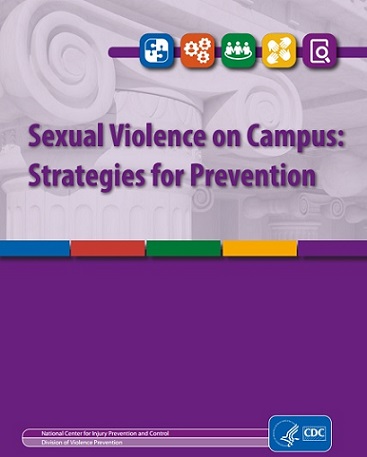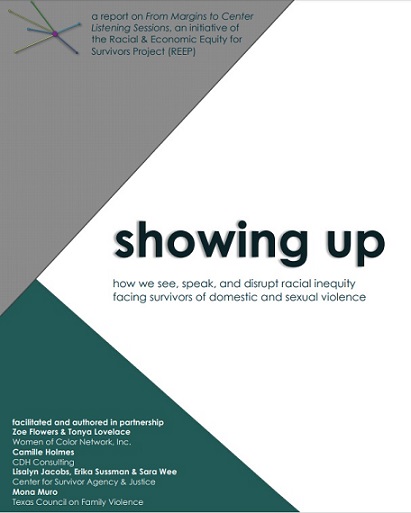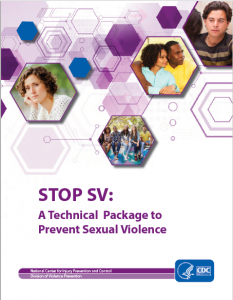Resources Library: Publications/Reports
Start a Search:
Sexual Violence in the Lives of African American Women
Black women’s sexual victimization has occurred in a unique sociohistorical context. This applied research document published by VAWnet provides an historical overview of institutional sexual violence perpetrated against Black women beginning with the enslavement of Africans and continuing to the present day. Risk factors, the physical and mental health consequences, culturally sensitive responses, and the resilience of Black survivors are discussed.
Sexual Violence on Campus: Strategies for Prevention

The Centers of Disease Control and Prevention recently released Sexual Violence on Campus: Strategies for Prevention. This tool offers an overview of how to approach sexual violence prevention on college campuses with real-world examples from the field.
Click here to access the document.
Showing Up: How We See, Speak, and Disrupt Racial Inequity Facing Survivors

(as originally posted by the Center for Survivor Agency & Justice)
In September 2017, REEP facilitated seven From Margins to Center Listening Sessions to facilitate dialogue across the field on racial and economic equity for survivors. This report dialogues-back with the community that contributed to the From Margins to Center Listening Sessions. It shares themes and issues from Listening Session conversations via text, graphics and illustrations in order to aid in self-reflection, challenge dominant narratives, support improved data collection and analysis, and to begin, continue, or advance conversations and work toward racial equity for domestic and sexual violence survivors and for all of us.
State Policy Playbook for Ending Campus Sexual Assault
Know Your IX's State Policy Playbook outlines key reforms that students, advocates, and state policymakers can pursue to support survivors on campus, keep students safe, and end gender-based violence in school. Although Title IX and the Clery Act require schools to take action to address gender-based violence, these federal laws set only a floor for schools' responsibilities to create safe and equitable learning environments. States can and should do more to keep schools from sweeping sexual violence under the rug.
For additional resources, you can visit the Know your IX website here.
STOP SV: A Technical Package to Prevent Sexual Violence

This Centers for Disease Control and Prevention technical package represents a select group of strategies based on the best available evidencde to help communities and states sharpen their focus on prevention activities with the greatest potential to reduce sexual violenced and its consequences. Each strategy includes a rationale, specific approaches, potential outcomes, and evidence.

